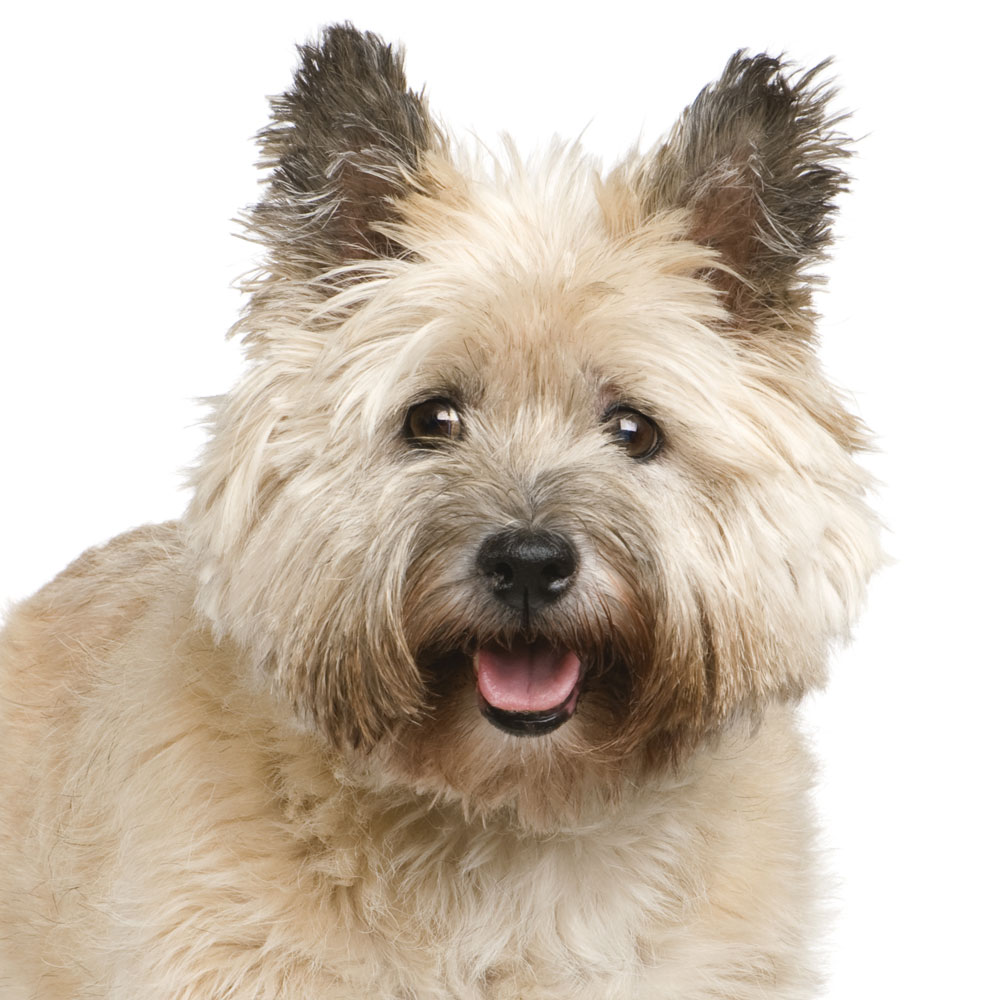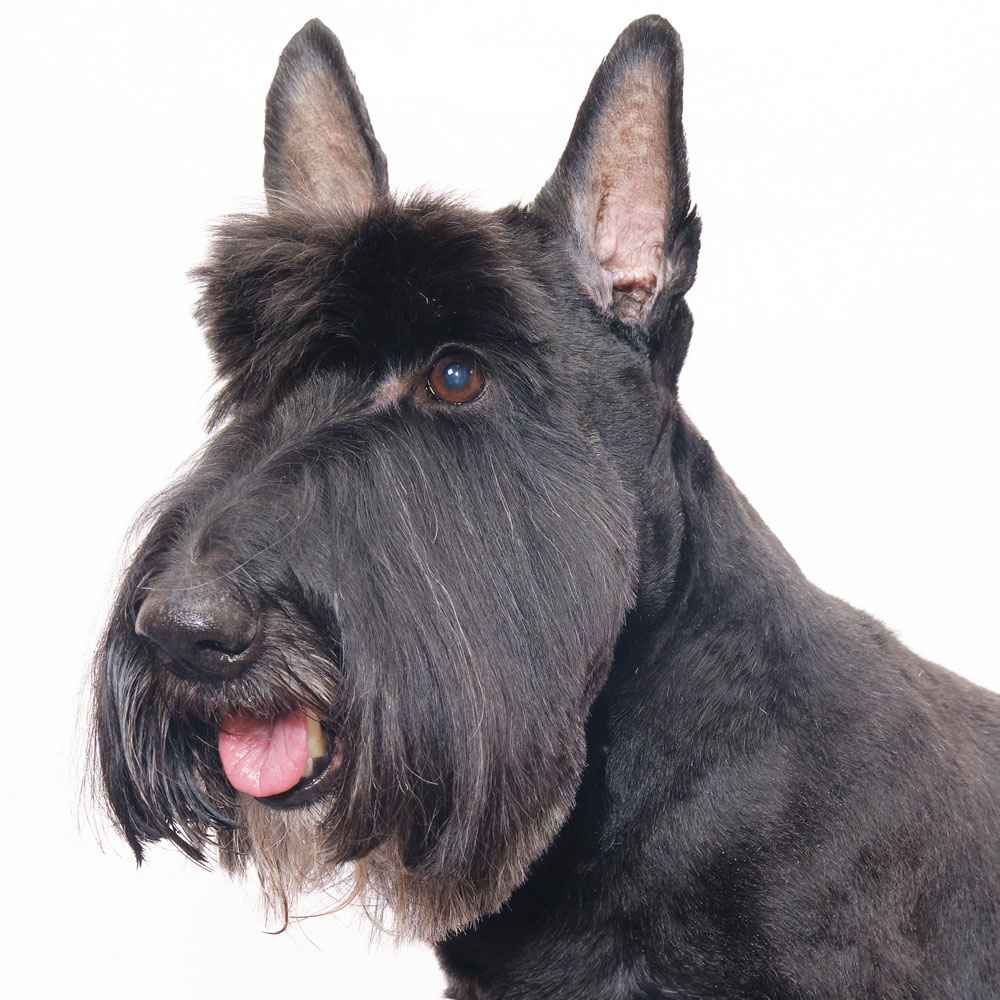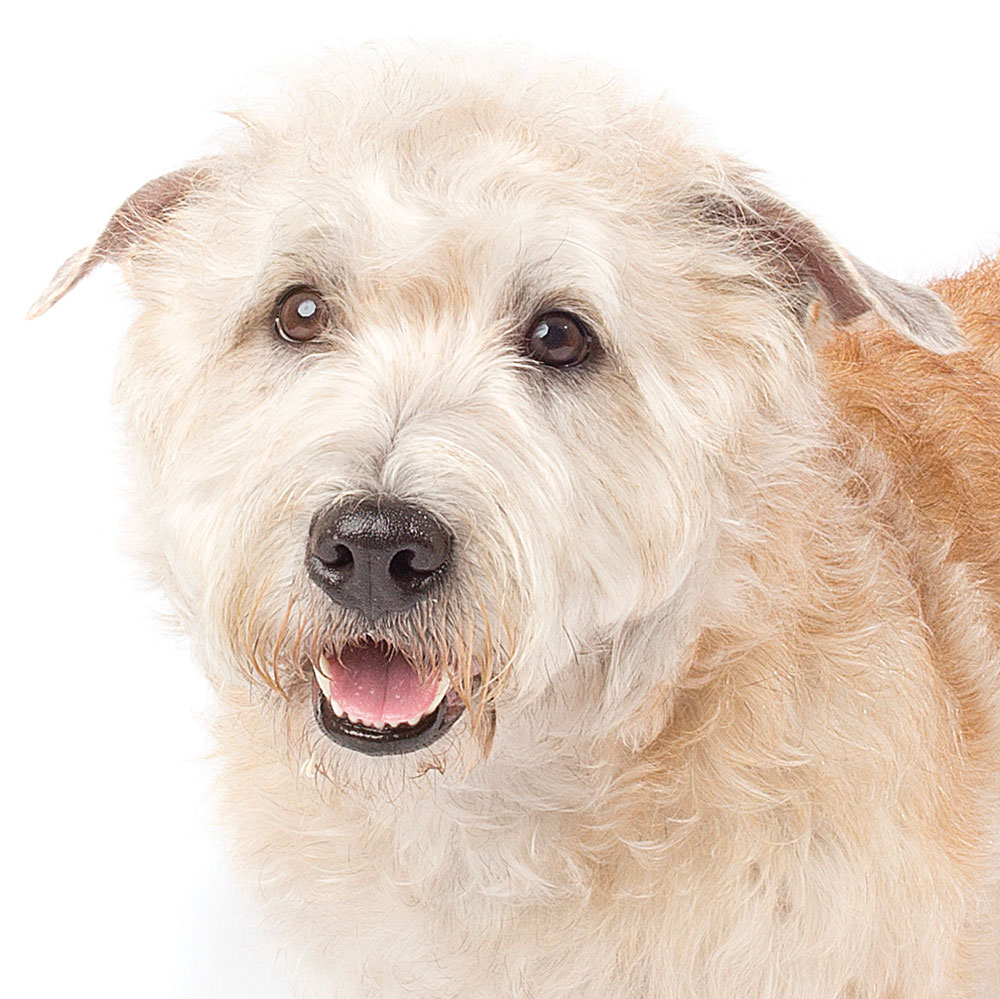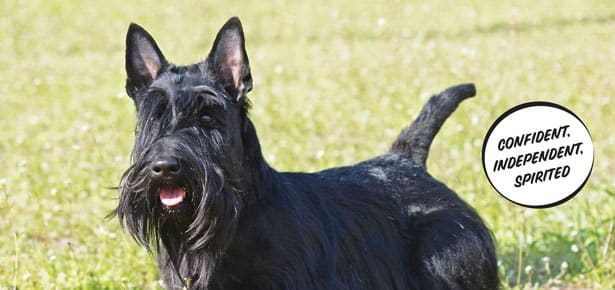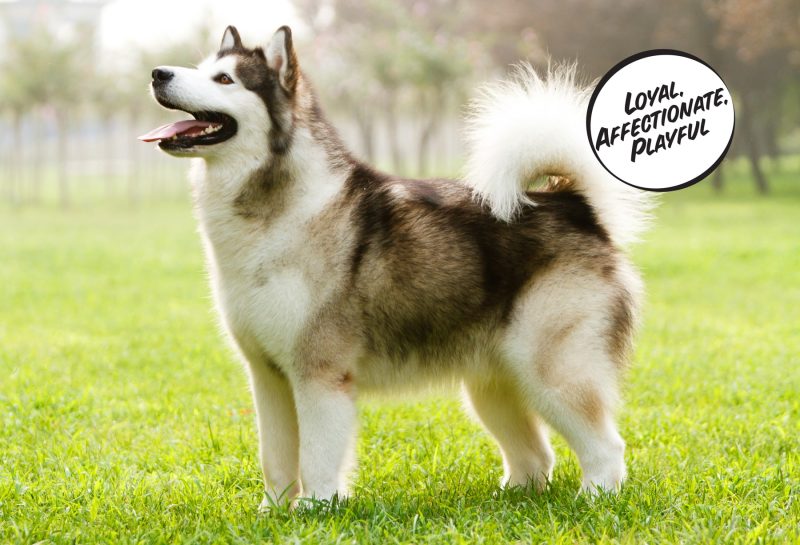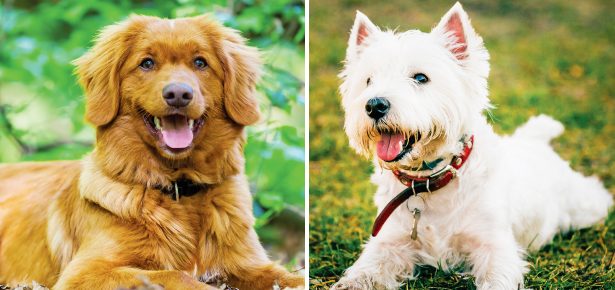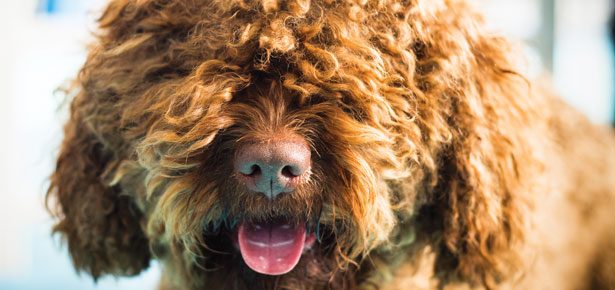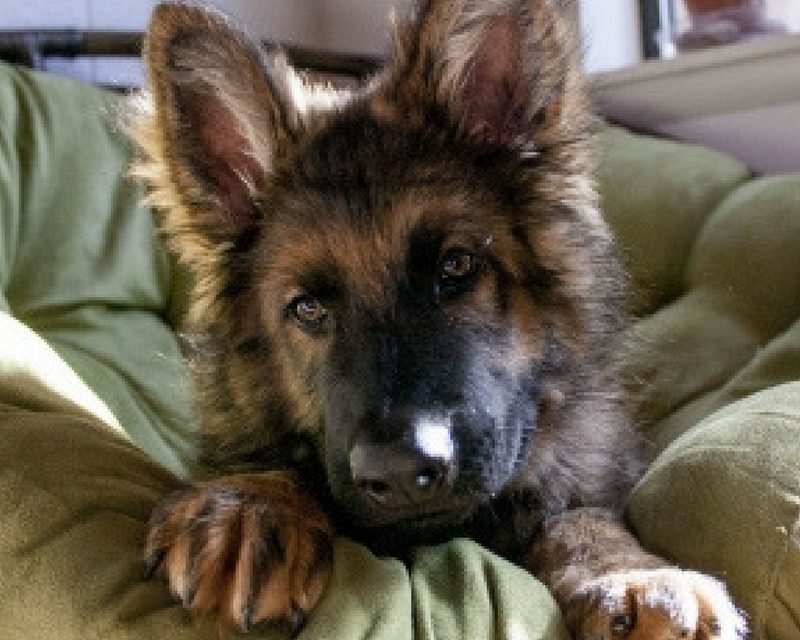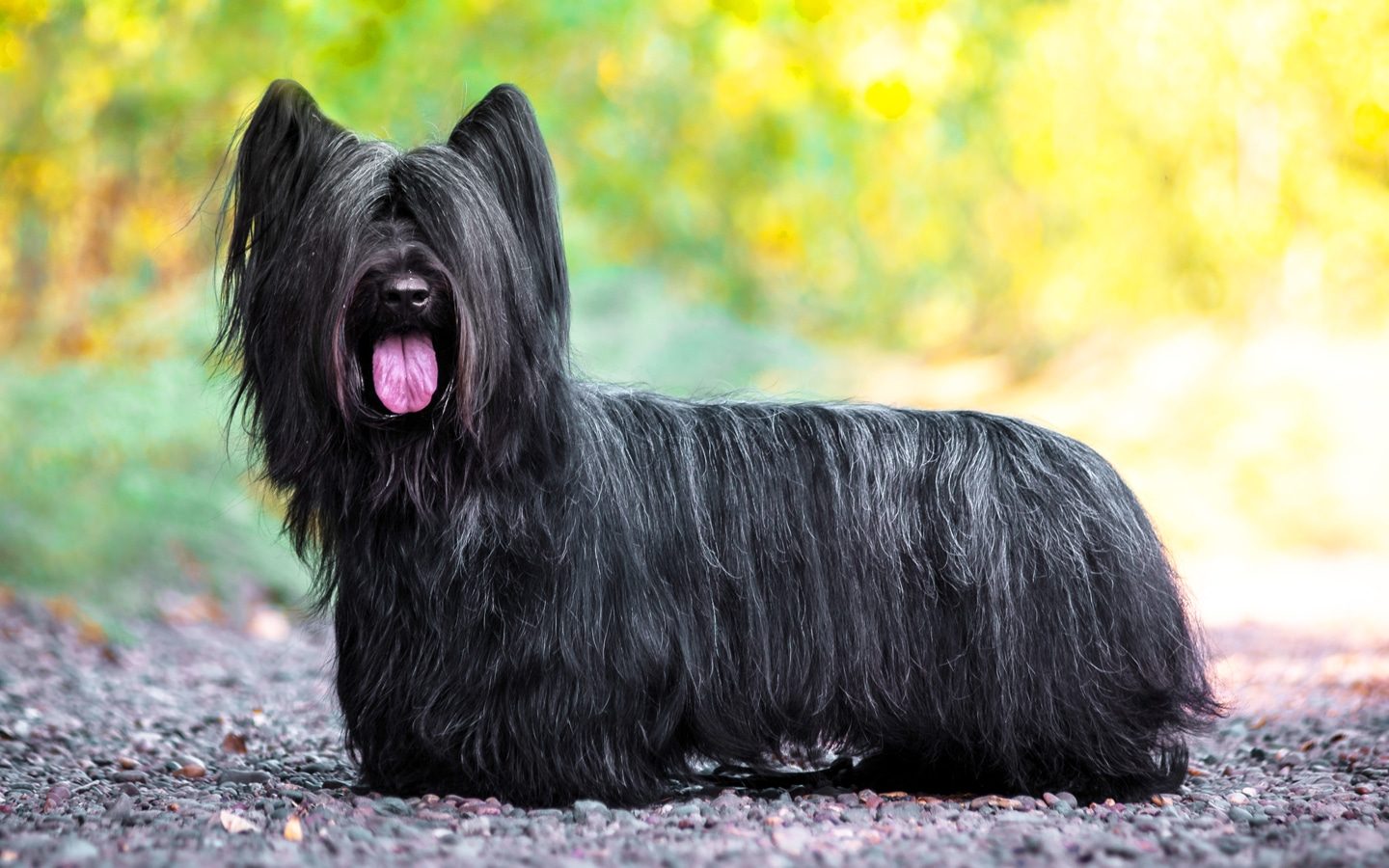
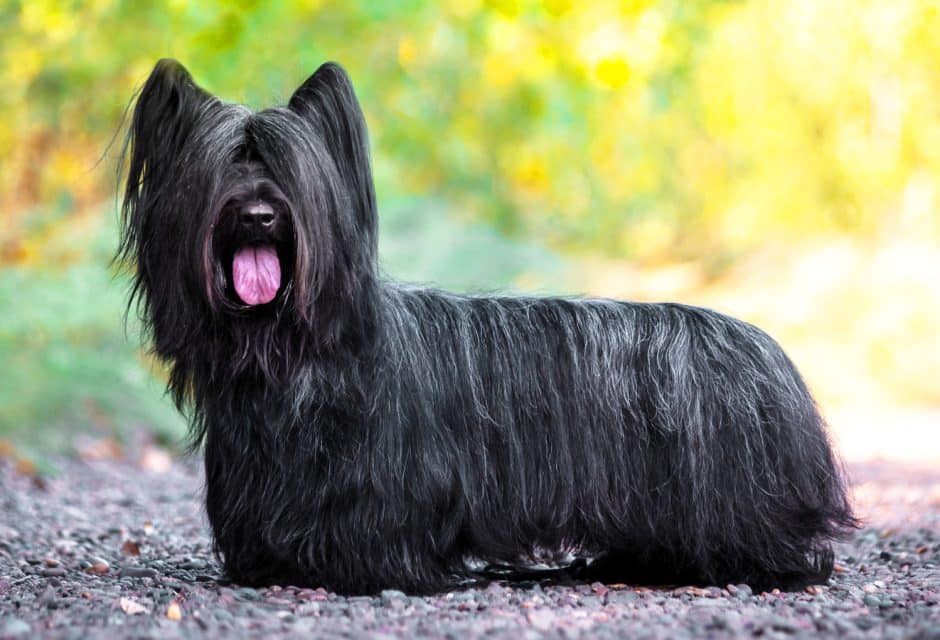
The Skye Terrier
An Endangered Breed from the Isle of Skye

The Skye Terrier has an incredibly striking and unique appearance—yet you might never have seen him! That’s because he’s such a rare breed that he is considered ‘at risk.’ His status as endangered is, honestly, hard to believe once you learn about this charming and fascinating breed.
Yet another of Scotland’s plucky terriers, this fellow comes from a land that is truly the stuff of magic and fairy tales. The Isle of Skye—the largest of Scotland’s islands—is characterized by harsh, beautiful terrain. Jagged mountains, lush landscapes, an abundance of waterfalls… this is a bucket-list-worthy destination. Today, it remains a sacred place where the legends of fairies, giants, and kelpies are still told—and it’s the birthplace of this rare breed.
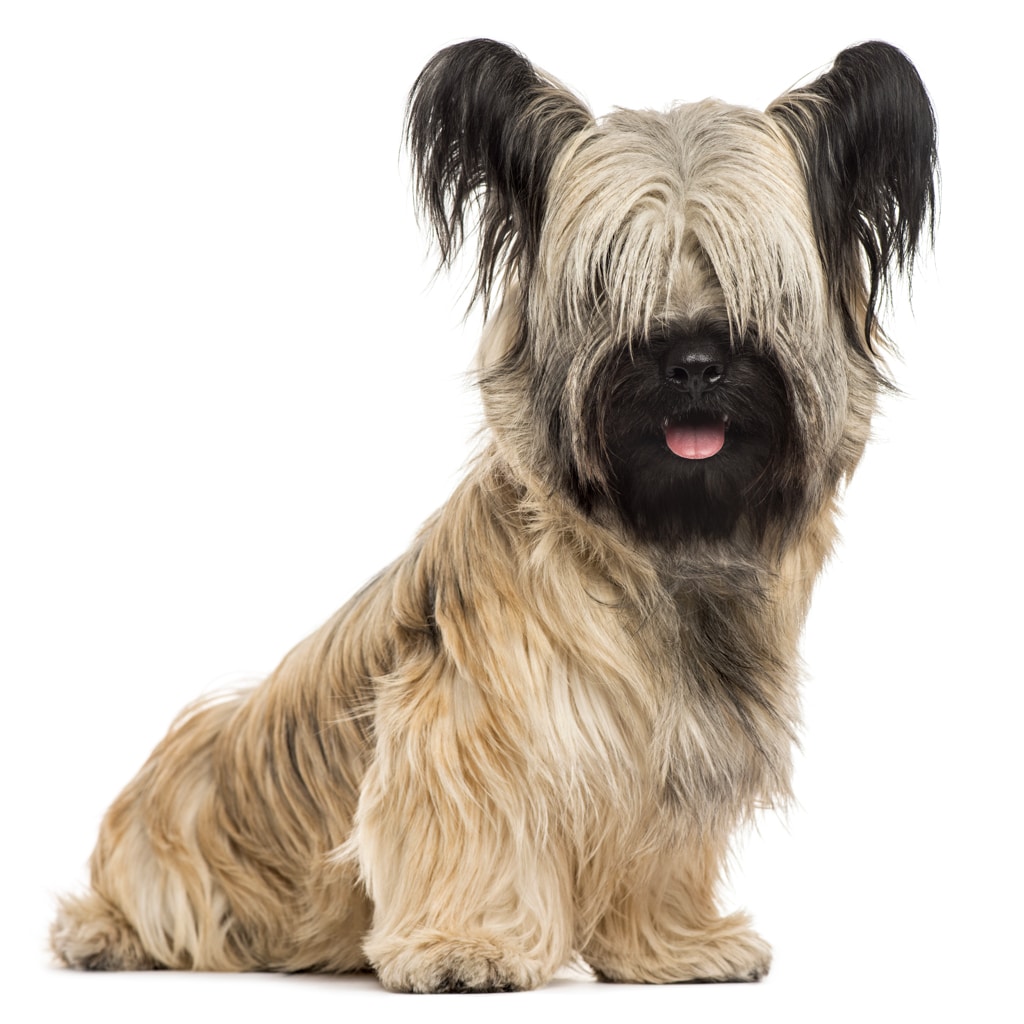
Life on White/Bigstock
The Skye Terrier’s origins date back to the 14th century, making him the oldest of Scotland’s breeds. Written records do not exist to detail the development of this terrier, but oral traditions alone for the Skye are centuries-old and, not surprisingly, are as steeped in mystery as the island itself.
It has been said that, during the 1500s and 1600s, ships crashed among the treacherous reefs surrounding the Isle of Skye. One theory is that the dogs from those ill-fated vessels made it to shore and subsequently bred with the local terriers. Considering that ships came from all manner of ports and picked up dogs along the way, it is a solid theory that could explain the long, silky coat that sets this breed apart from his closest terrier cousins.
The terriers that were on the island at that time would have developed from a variety of sources, among them, the Vikings. A look at the Swedish Vallhund (whose history can be traced to the Viking era) shows a clear resemblance of body type. Like the Vallhund, the Skye is a compact, solidly-built dog—about twice as long as he is tall.
In his earliest days, the Skye earned a reputation as a tough, working terrier that was adept at tracking the marine and wildlife so abundant on the island, including weasels, badgers, and otters. Strong and with plenty of stamina, the Skye had the agility to work along the rocky cairns and rugged landscape. Some say he is without match in the terrier world, for his ability to tackle rocky terrain, dens, burrows, or even waters where needed.
That double-coat isn’t just beautiful—it’s practical. A harsh outer coat and soft undercoat protects from the inclement weather for which the island is known.
The breed certainly gained some notoriety off-island when it became a favourite of Queen Victoria. A renowned dog-lover, she had Skye Terriers and this led to a boost in their popularity (especially among the aristocracy) during the mid-1800s. Additional interest in the breed came from their depictions in Sir Edwin Landseer’s paintings.
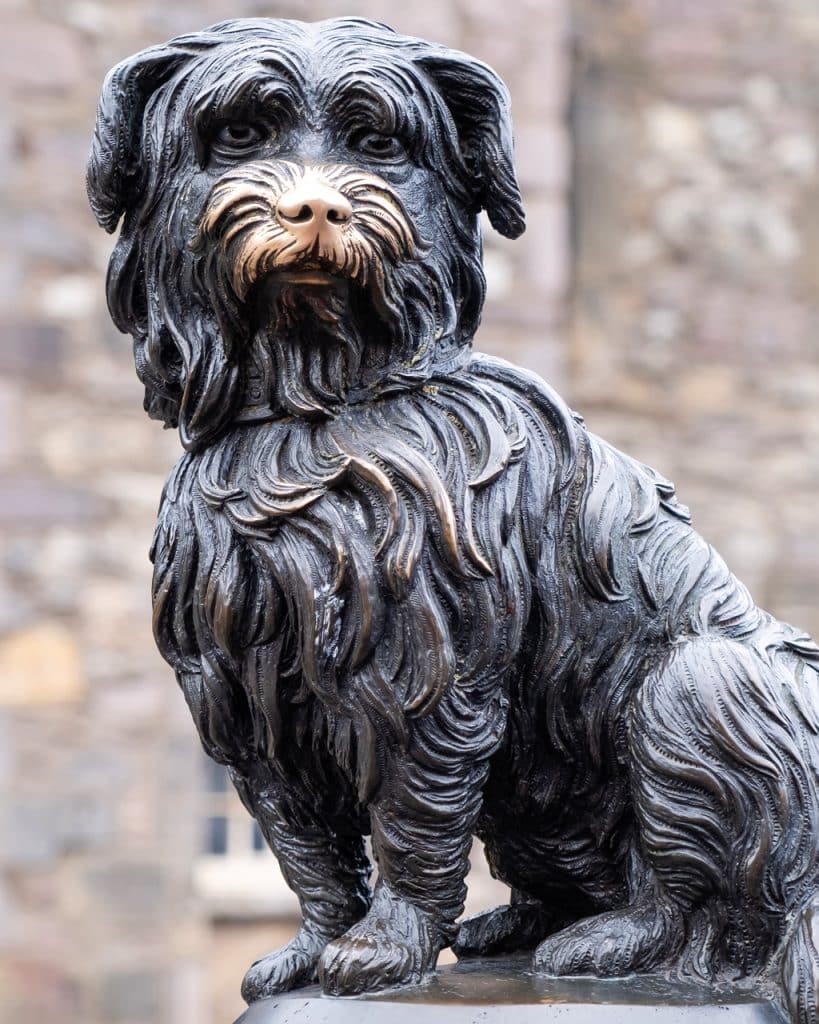
Kamira/Bigstock
Greyfriars Bobby
Many are familiar with the tale of Greyfriars Bobby, a terrier who spent 14 years guarding the grave of his beloved owner in 19th-century Scotland. But did you know that Bobby was a Skye Terrier? Bobby, cared for and fed by townsfolk who couldn’t help but love him, remained at his owner’s grave until he passed away in 1872. A commemorative statue remains today– a symbol of the incredible loyalty that Bobby had– and for which all Skyes are known.
The Skye’s popularity extended to North America, and the American Kennel Club (AKC) recognized the breed in 1887. According to the AKC standard, ideal shoulder height is 10 inches for males and 9.5 inches for females. Proportions are strongly emphasized, as the breed is expected to be twice in body length to his shoulder height, so around the 20-inch mark.
His ears may be dropped or naturally upright, and the AKC accepts the breed with a coat in varying shades of black, blue, grey, silver platinum, fawn, or cream colours. Black points on the ears, muzzle, and tip of the tail are desired.
Why the Skye has dropped so significantly in popularity over the years may be as simple as the fact that so few people know of the breed. Some speculate that the long, silky coat is a deterrent as it looks like a lot of work (it really isn’t.) Regardless, the breed is now so rare that the Skye Terrier is considered ‘at risk.’ In 2020, he ranked 183 on the list of 195 breeds registered with the AKC, in terms of popularity.
Most Popular Dogs in the US
According to the most recent AKC registration statistics (2022)
[1] French Bulldog
[2] Labrador Retriever
[3] Golden Retriever
[4] German Shepherd
[5] Poodle
[6] Bulldog
[7] Rottweiler
[8] Beagle
[9] Dachshund
[10] German Shorthaired Pointer
[189] Skye Terrier
There can be a tendency to lump all terriers together. This is a mistake, and to be sure, the Skye Terrier’s personality is as unique as his appearance. He’s arguably the most relaxed and calm-natured in the entire group, and he’s also known for being hopelessly devoted to his human family. Fanciers note how in-touch this breed is with the emotions of his guardians—this sensitive dog is unlikely to leave your side, especially if you’re feeling blue. The Skye also has a reputation for being patient with children and tends to keep a watchful eye on them. As for strangers, it can take a bit for the Skye to warm up to new people, but he’ll come around.
“The breed is now so rare that the Skye Terrier is considered ‘at risk.’”
Considered highly intelligent and, in typical terrier fashion, head-strong, training and socialization must be a priority from an early age to ensure basic obedience is learned. Only positive training methods should be used with this sensitive breed (and all breeds).
Exercise requirements are modest. Daily walks and some play time will suffice. That said, this is quite an agile and athletic dog—after all, he comes from a land of extremely rugged terrain. Skye fanciers around the world let out a collective gasp when, in 2014, a Crufts announcer commented that the breed probably wouldn’t ever be seen doing agility. In fact, these dogs can and do excel in agility. Beauty and athleticism are not mutually exclusive!
The good news is that training, play time, and canine sports are all things the Skye can excel in, because he views all of the above as time for bonding with his people—and that’s what drives this canine love-bug.
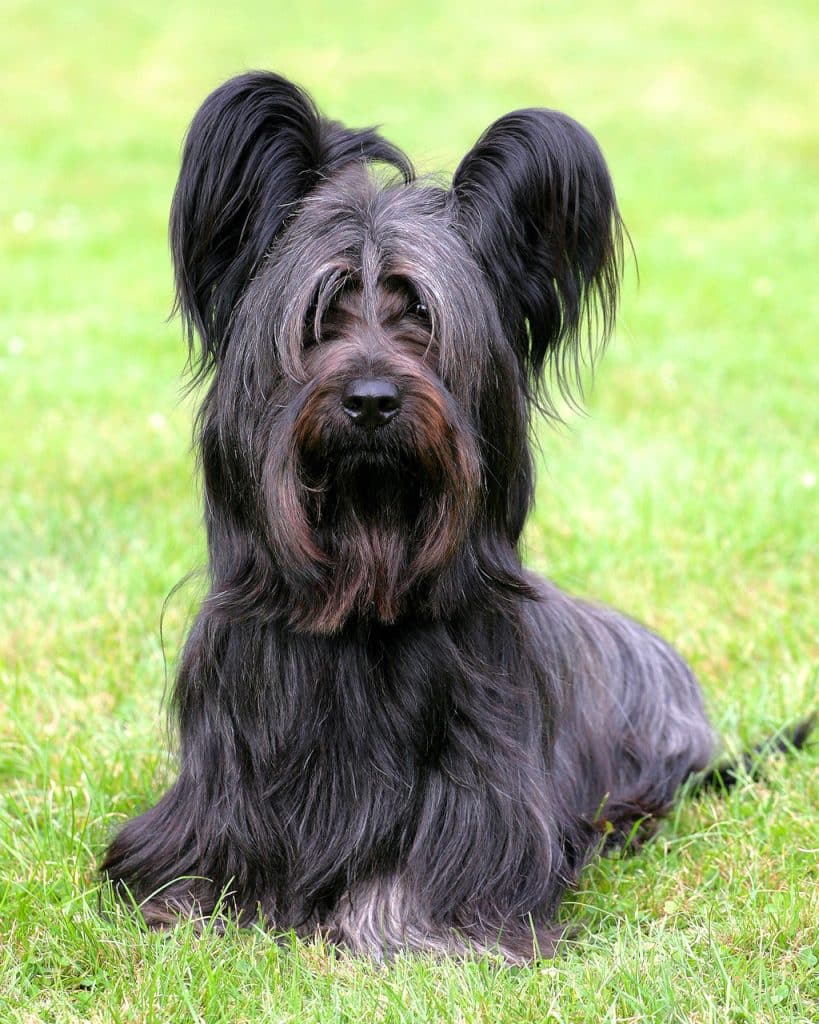
Radomir-Rezny/Bigstock
Profile: The Skye Terrier
Size: Medium
The Skye is about twice as long as he is tall. Shoulder height ranges from 9.5″ to 10.” He’s strong and sturdy, weighing between 35-40 pounds for males and 25-30 pounds for females.
Activity Level: 4/5
The Skye is pretty chill for a terrier. A long daily walk and some play time will suffice. However, he’s naturally athletic and agile– if you want to get out and get active with this breed, he’ll be up for it.
Grooming: 3/5
Regular brushing for this double-coated breed will keep him looking silky and beautiful. The hair around his eyes will need a bit of trimming, and keeping those nails short is important.
Heritage:
A low-lying, hearty terrier built to withstand the harsh terrain on the Isle of Skye, and used for hunting among the rocky cairns.
For more information on Skye Terrier rescue, visit stca.us/rescue.
Grooming is a consideration, although the stunning, silky coat isn’t nearly as much work as you might imagine. Weekly brushing is an absolute must, as is a routine ear-check for dirt or excess wax. But the coat doesn’t require trimming. He may not look it, but the Skye is actually quite a natural beauty! Ideally, starting to familiarize the Skye with grooming from an extremely early age is best. Most Skyes love being groomed—it’s just another way they can remain close to their people.
Fortunately, the Skye Terrier is quite a hearty and healthy breed but, as always, it’s important to work with a reputable breeder who conducts health clearances on foundation stock and puppies.
He’s such a treasure, it’s hard to believe that the Skye Terrier is the most vulnerable breed in the United Kingdom—literally on the verge of extinction. But, just like the legendary island from which he originated, the Skye Terrier is exotic and truly known to very few. Take the time to learn about the breed. They’re loving and loyal companions. The Skye’s worth a look and most definitely worth preserving.
If you like the Skye Terrier, you might also consider the…
Cairn Terrier Scottish Terrier Glen of Imaal Terrier
Inset photos from left to right: Life on White/bigstock.com; Ihar Halavach/bigstock.com; Angie Kerins © American Kennel Club
» Read Your Breed For more breed profiles, go to moderndogmagazine.com/breeds
Join the newsletter and never miss out on dog content again!
"*" indicates required fields
By clicking the arrow, you agree to our web Terms of Use and Privacy & Cookie Policy. Easy unsubscribe links are provided in every email.
